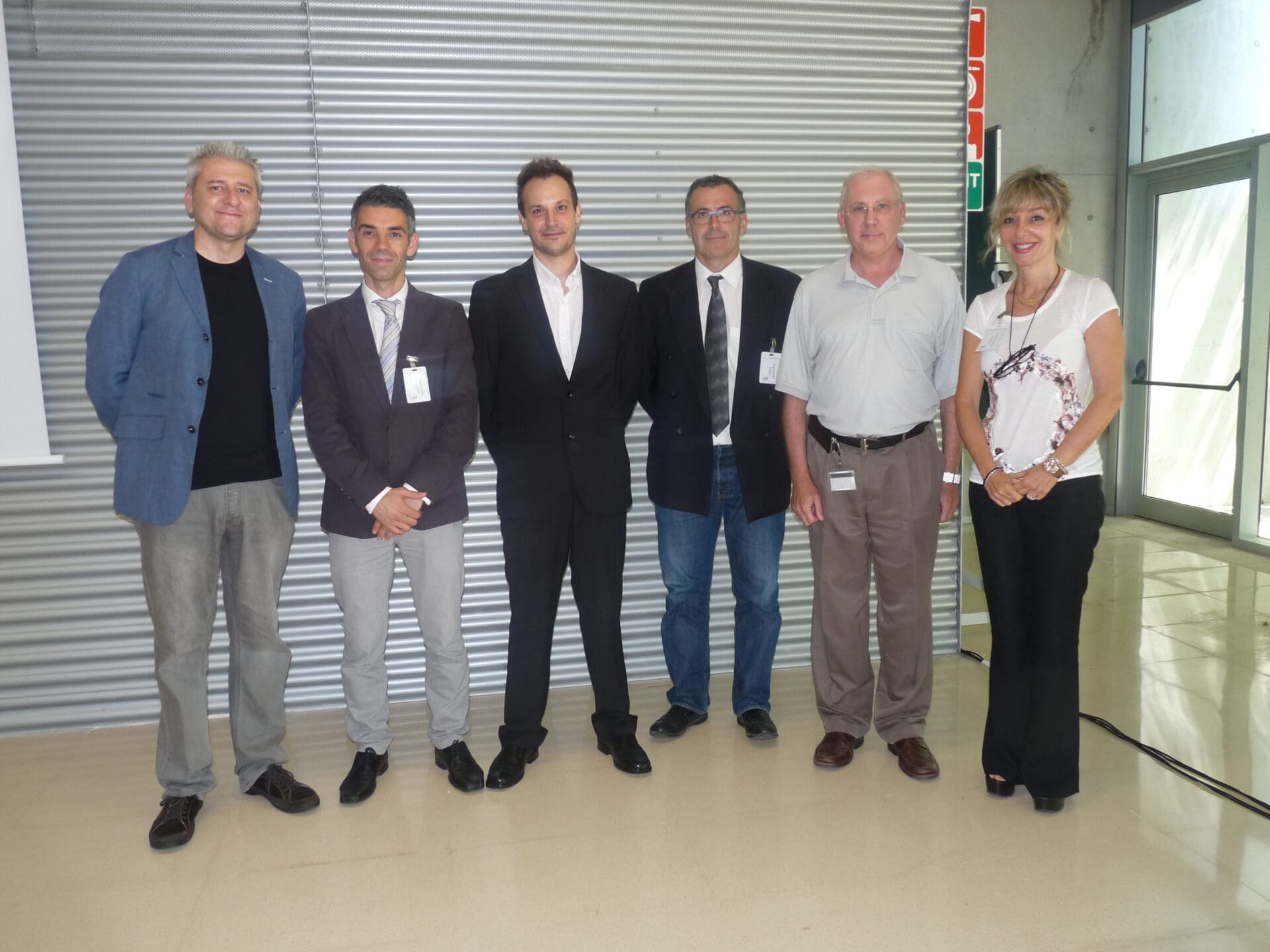New Doctor at ICIQ!
Nelson Giménez, PhD student under the supervision of Profs. Pau Ballester and José Ramón Galán-Mascarós, has defended his PhD Thesis entitled ‘Synthesis of Tetra-azaporphyrins, Phthalocyanines and Lanthanide Double-Decker Sandwich Complexes’ (assigned to the Organic and Analytical Chemistry Department of the Universitat Rovira i Virgili) publicly on July 25th at the ICIQ auditorium.
The members of the evaluation committee were: Prof. Daniel Ruiz Molina (Institut Català de Nanociència i Nanotecnologia), Prof. Giovanni Bottari (Universidad Autónoma de Madrid) and Prof. Maria Laura Mercuri (Università degli Studi di Cagliari).

Dr. Giménez with his supervisors, Profs. Pau Ballester and José Ramón Galán-Mascarós, and the evaluation committee
Abstract:
This thesis comprises the synthesis and study of different lanthanide double-decker sandwich complexes using tetrapyrrolic macrocycles as ligands. The resulting complexes are formed by the inclusion of a lanthanide ion between two macrocyclic rings. Complexes possessing these architectures are known to behave as single-molecule magnets.
Furthermore, we explored the dimerization equilibrium experienced by a chiral zinc phthalocyanine in solution by means of the determination of its dimerization constant. The coordination of quinuclidine to the zinc center was also quantified by using UV-vis and 1H NMR titration experiments. The stoichiometries of the coordination complexes formed are discussed in detail. Different lanthanide double-decker complexes were built using en ethyl substituted azaporphyrine which allowed better solubility and processability of the final complexes. Moreover, phthalocyanies with different functional groups were prepared and used for the preparation of lanthanide double-decker complexes. The magnetic susceptibility measurements showed single-molecule magnet behavior of the newly prepared compounds. Finally, the possibility of incorporating the single-molecule magnets onto surfaces was studied by STM deposition of the Tb(OETAP)2 and Dy(OETAP)2 species. Additionally, the deposition of the OETAP ligand on Au(111) allowed us the study of thermally tunable pericyclic reactions on surfaces. By temperature control we were able to produce quasiunidimensional phthalocyanine tapes or monomeric phthalocyanines on a well-defined Au(111).
Related news

Let's create a brighter future
Join our team to work with renowned researchers, tackle groundbreaking
projects and contribute to meaningful scientific advancements






 30-10-2024
30-10-2024 


















